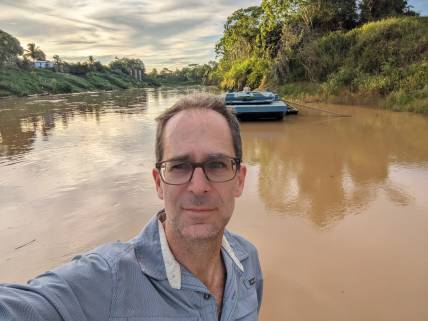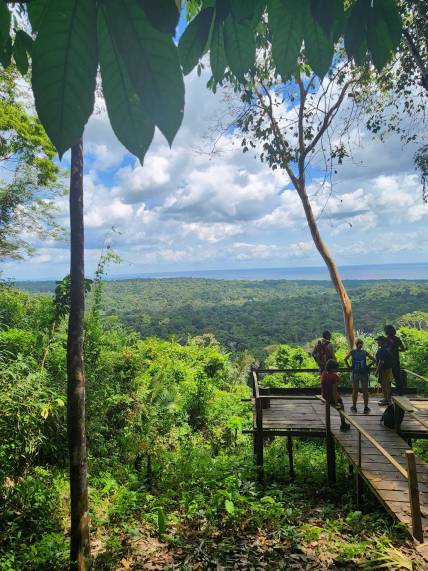NYU Takes Center Stage at NYC Climate Week, Bridging Global Policy and Research
As world leaders converge for Climate Week NYC (Sept 22-29), NYU Wagner is helping to advance understanding of one of the planet's most pressing issues: the future of the Amazon rainforest.
At the heart of Wagner's involvement is Associate Professor Salo Coslovsky and his ongoing work to create a bridge between Brazilian environmental leaders, global climate policymakers, and his research conducted at NYU.
"Climate Week brings this global conversation right to our doorstep, and NYU is ideally positioned to contribute," says Coslovsky, an expert in forest-friendly economic development in his native Brazil.

The Amazon, often called the lungs of the Earth, stands at a critical juncture. Its role as a major carbon sink is increasingly threatened by deforestation, potentially transforming this vital ecosystem from a climate change mitigator into an accelerant. The stakes could not be higher.
NYU will host two landmark events during Climate Week NYC. Each looks ahead to next year's COP30 in Belém, Brazil—a conference that could determine the fate of the Amazon if not the world. On Sept. 24, "Climate Politics and Climate Science: The Road to COP30" brings together top experts, including Brazil's National Secretary for Climate Change, Brazil’s Lead Climate Negotiator and the Director of the Potsdam Institute for Climate Impact Research. The event will be convened at the King Juan Carlos I of Spain Center at New York University.
The same day, NYU's Guarini Center at the NYU School of Law will host "From Forests to Farms: Tackling the Environmental and Social Impacts of Food Production in Brazil." This daylong symposium will dive deep into the challenges of sustainable agriculture and cattle-ranching in the Amazon, featuring a keynote by Helder Barbalho, governor of Pará state.

But NYU's impact extends beyond campus borders. Professor Coslovsky is taking his research to various Climate Week venues, from a discussion on how to empower small firms at Casa Amazônia, an immersive event space, to a debate on fostering sustainable food systems with Brazil’s former environmental minister, a top philanthropist and a renowned chef.
Just days before the New York events, on Sept. 17, Coslovsky presented his findings at a high-profile meeting jointly hosted by the Brazilian Mission to the EU and The Nature Conservancy. His report drew parallels between the challenges faced in the Amazon and those in Brazil's Cerrado, a vast central savannah that acts as Amazon’s integral partner.
Professor Coslovsky emphasizes the unique opportunity that Climate Week presents for students: "Don't wait until after graduation to engage with policy-makers and industry professionals,” he says. “Act now, while these experts are in New York City, away from their usual busy schedules."
Cutting-edge research at NYU Wagner is revealing the far-reaching consequences of Amazon deforestation. A team led by Coslovsky’s collaborator Gustavo Pinto, from the Climate Policy Initiative and PUC-Rio, are using NYU's supercomputer cluster to estimate with unprecedented precision how forest loss negatively affects rainfall patterns, urban water supply and even hydroelectric power generation in distant regions.
"Work done at Wagner has global reach," Coslovsky observes. “Climate change and the Amazon's future represent not just an urgent challenge, but an exciting opportunity for members of the NYU Wagner community to engage with research that impacts the entire world."